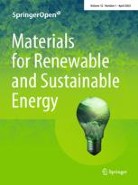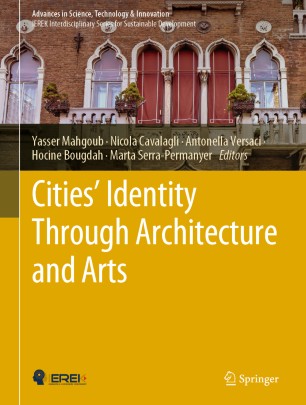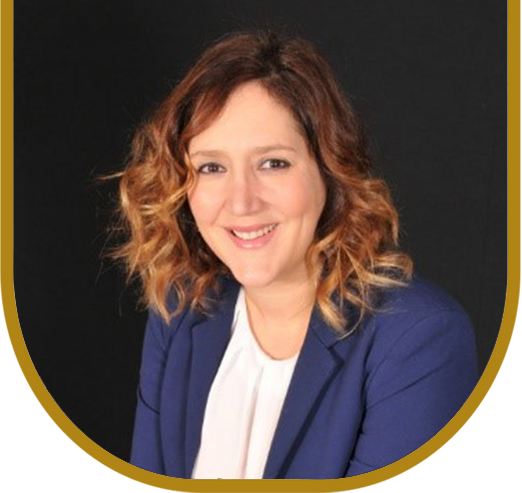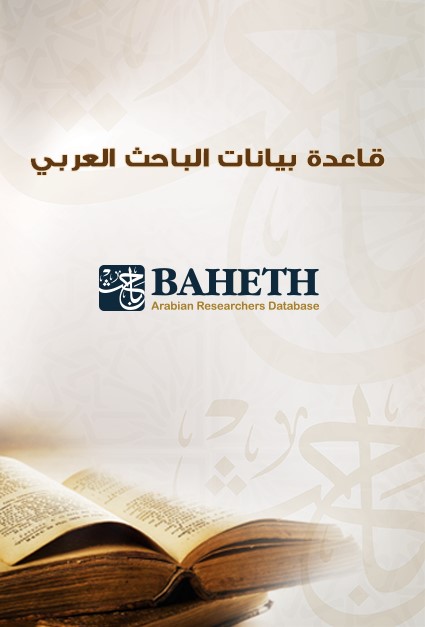Environmental Integration on ...
Online Conference
10 Apr 2025 / 12 Apr 2025 read more

Subscribe to our newsletter
The first edition of the International Conference on “Advances in Energy Research, Materials Science & Built Environment (EMBE)” was held Online from the 3rd to the 4th of October, in an effort to include attendees from all corners of the world.
The conference discussed topics about urban planning, sustainable architectural design, climate change mitigation techniques, and evolutionary design. Also, it additionally promotes sustainable development techniques across various fields such as architecture, engineering, and urban planning, envisioning a brighter, greener, sustainable future for humanity.
The conference covered a wide array of topics, Some of the main topics that were discussed include:
1- Climate Change: Challenges, Risks and Solutions
2- Green Urbanism’s Role in Resilient Communities and Environmental Efficiency
3- Opportunities and Challenges in Coastal Areas
4- Evolving Architecture and Rethinking City's Image and Preservation
5- Materials for Renewable and Sustainable Energy
6- The Role of Advanced Technologies in Sustainable Architecture
7- Entrepreneurial Studies and Practical Applications

The conference welcomed Prof. Alexandra Delgado-Jiménez from the University Nebrija, Spain, and Prof. Cristina Piselli from the University of Florence, Italy, as Keynote speakers at our conference. Their presentations have been truly inspiring, showcasing their incredible work following by fruitful session and presentations.


We are at a critical point in humanity’s journey. Numerous challenges present themselves, most notably, the rising threat of climate change that looms on the horizon, threatening the continuation of humanity and other species across the globe, and jeopardizing the preservation of coastal cities. Climate change is merely the symptom, however, not the cause, and if we are to surpass this monumental challenge, we must trace back to the factors that led us down this path.
Technological advancement has always been humanity’s forte, it has aided us throughout historical and modern times alike. We have focused so narrowly on technological advancement, however, that we turned a blind eye to the rising cost of an unsustainable approach. Additionally, our reliance on fossil fuels and non-renewable sources of energy to power our cities further contributes to the emission of greenhouse gases and the monumental challenge of climate change, which threatens to melt polar ice glaciers, and devastate coastal cities globally.
These consequences bring forth a dire need to allocate renewable, efficient, and affordable forms of energy, promote sustainable, healthy, and diverse ecosystems, and support enabling technologies that can offer promising solutions. An overhaul is required to our approach towards cities, a sustainable design will ensure the continuation and well-being of cities’ inhabitants, and humans around the world. A green approach towards urbanism that facilitates accessible public transport, and prioritizes energy, water & food security for its inhabitants, and regenerates compact fabric areas. An innovative approach towards materials that emphasizes sustainable construction, and a durable, eco-friendly design that ensures the resiliency of cities and the constructions within them.
Addressing these pressing challenges, and looking towards future sustainability, IEREK announces the first “Advances in Energy Research, Materials Science & Built Environment” conference, through which, discourse across multiple disciplines such as architectural development, green urbanism, modern construction management practices, and material efficacy in climate change mitigation, will investigate research on sustainability and development. Implementing these techniques will lead to achieving efficient, renewable, affordable, and inclusive green growth to accomplish the now urgent developmental needs of countries, and bring about a level of prosperity, and a better managed and robust environment.
With much theoretical and empirical knowledge to draw on in recent years, this conference aims to stimulate a discussion, in the form of submitted contributions and delivered presentations, surrounding the following main topics: (1) Climate Change: Challenges, Risks, and Solutions, (2) Green Urbanism’s Role in Resilient Communities and Environmental Efficiency, (3) Opportunities and Challenges in Coastal Areas, (4) Evolving Architecture and Rethinking City's Image and Preservation, (5) Materials for Renewable and Sustainable Energy, (6) The Role of Advanced Technologies in Sustainable Architecture, (7) Entrepreneurial Studies and Practical Applications.
The conference does not only aim to provide descriptions, proposals, and recommendations of innovations, and theoretical foundations, but also offers a comprehensive overview of the latest developments in materials for efficient and sustainable energy applications in buildings, neighborhoods, cities, and coastal zones.
It will also provide an opportunity for exploration where not only new technologies in the Architecture, Engineering, and Construction (AEC) industry are highlighted, but also a guide to practical application is made available. It offers a comprehensive approach covering fundamentals, technologies, and applications through real-world examples.
Scope
The Advances in Energy Research, Materials Science & Built Environment (EMBE) conference aims to discuss topics pertaining to urban planning, sustainable architectural design, climate change mitigation techniques, and evolutionary design. The world around us is continuously evolving, largely due to technological advancements in fields such as architectural development, engineering, and computational technology. EMBE will host various knowledgeable keynote speakers and researchers that will deliberate on topics such as the incorporation of technology in sustainable urban planning, green urbanism, preservation of coastal areas, novel innovations in renewable materials, and responsive architecture. The conference envelops a multitude of scientific aspects of knowledge, that will lead humanity to a sustainable, greener future.
Statement of Purpose
It is incredibly apparent, especially as of late, that human activity directly influences environmental change. Continual technological development has undoubtedly ushered humanity toward an idyllic, prosperous life, however, human industriousness and activity has proportionally increased as a result. A comprehensive look into various human activities aboard planet Earth is direly needed, if we are to secure a safe and stable future for future generations. EMBE aims to dissect human activity on multiple facets, addressing key issues that demand attention and improvement. The conference additionally promotes sustainable developments techniques across various fields such as architecture, engineering, and urban planning, envisioning a brighter, greener, sustainable future for humanity.
1.1 Challenges of Sustainability: Climate and Energy Security
1.2 Urban Resilience and its Positive Effects on Climate Change & the Environment
1.3 Climate Responsive Architecture: Utilizing Renewable Energy
1.4 Climate and the potential of clean energy production and infrastructure
1.5 Renewable and Sustainable Energy Pathways
1.6 Renewable and Natural Energy and their roles in climate change adaptation
1.7 Education & Climate Change: Role and Objectives
2.1 Green Initiatives in Technology for Sustainable Development
2.2 Transit Strategies for Sustainable Urban Transport
2.3 Urban Creative Environments: Sustainable Places for Living, Working, and Recreation
2.4 Sustainable Waste and Energy Management
2.5 Natural Resource Management and Urban Biodiversity
2.6 Green Buildings: Modelled for Efficiency and Sustainability
2.7 Urbanization of Rural Areas: Gardens & Streetscapes, and Urban Biodiversity
2.8 Regeneration of Compact Fabric Areas
3.1 Sustainable Tourism Development in Coastal/Marine Environments
3.2 Circles of Sustainability at Costal Zones: Zero Energy Use
3.3 Marine Renewable Energy
3.4 Green & Clean Energy for Coastal & Offshore applications
3.5 Urban, green landscape of Arid and Mountain Environment
3.6 The Vocabularies, and Green Opportunities of Coastal Architecture
4.1 Biomimetic Approaches to Architectural Design for Increased Sustainability
4.2 Historic Preservation, Management, and Rehabilitation
4.3 Public Transportation-Planning and Sustainable Networks
4.4 Public Involvement in Sustainable Development
4.5 Future Challenges for Contemporary Cities
4.6 Infrastructure, Facilities, and ICT Technologies and Sustainable Economy
4.7 New Way Finding and Place-Making of the City
4.8 Compact Policies for Megacities: Core Areas and Metropolitan Regions
4.9 Challenges of Rapid Urbanized Economy and Cities Gateways Development
5.1 Advances technologies in Renewable and Alternative Energy
5.2 Sustainable Construction Materials & Technologies
5.3 Computational Approaches to Material Design
5.4 Modern Materials and Methods: Eco-Friendly Design
5.5 Designing for Zero Waste: Building a Material Reuse Ecosystem
5.6 Alternate and Low-cost Construction Materials for Affordable Housing
5.7 Thermal Performance & Efficiency of Façade Materials in High Rise Buildings
5.8 Modern Advancements in Nanotechnologies
5.9 Durable Material Efficiency for Green Roof Applications
6.1 Digitalization & Digital Transformations in The AEC Industry
6.2 BIM Applications for Energy-Efficiency in Buildings
6.3 Material-Based Design Approaches for Sustainable Architecture
6.4 Energy Transitions and Digitalization in Buildings
6.5 Geospatial Approaches for Energy Systems Management
6.6 Systems and Technologies for Smart Homes
6.7 Training the Workforce for High-Performance Buildings
7.1 The Architect’s Guide to the Construction Management Delivery Method
7.2 Architect as Entrepreneur: Lessons in Establishing a New Practice
7.3 Formulating a sound digital roadmap for an agile & profitable construction business
| Title | Date |
|---|---|
| Abstract Submission Deadline "Round Two" | 30 Jun 2023 |
| Last Notification for Abstract Acceptance & Approval to present | 10 Jul 2023 |
| Regular Payment Deadline | 31 Aug 2023 |
| Extended Abstract / Short Paper Submission Deadline "Round Three" | 10 Sep 2023 |
| Notification of acceptance/ rejection of submitted extended abstract/ short paper | 20 Sep 2023 |
| Late Payment Deadline | 10 Sep 2023 |
| Conference Program | 15 Sep 2023 |
| Conference Launch | 03 Oct 2023 |
Selected papers submitted to the conference will be published by IEREK’s open access journal entitled “Materials for Renewable and Sustainable Energy” (MRSE) and published under the SpringerOpen brand, by Springer Nature, for which the Article Processing Charges (APCs) will be waived. MRSE is indexed in Web of Science’s ESCI, Scopus (2022 CiteScore: 7.5, Q2), SCImago and EI Compendex among other reputable databases.
Link to MRSE by Springer Nature: https://www.springer.com/journal/40243
 |
 |
About MRSE by SpringerOpen
Materials for Renewable and Sustainable Energy (MRSE) is an open access journal published under the SpringerOpen brand. Energy is the single most valuable resource for human activity and the basis for all human progress. Materials play a key role in enabling technologies that can offer promising solutions to achieve renewable and sustainable energy pathways for the future. Materials for Renewable and Sustainable Energy has been established to be the world's foremost interdisciplinary forum for publication of research on all aspects of the study of materials for the deployment of renewable and sustainable energy technologies. The journal covers experimental and theoretical aspects of materials and prototype devices for sustainable energy conversion, storage, and saving, together with materials needed for renewable fuel production.
Materials for Renewable and Sustainable Energy publishes reviews, original research articles, rapid communications, and perspectives. All manuscripts are peer-reviewed for scientific quality. The journal is partially sponsored by the International Experts for Research Enrichment and Knowledge Exchange (IEREK). More information.
 All accepted papers submitted to EMBE 2023 after the double-blinded peer-review process will be considered for publication as part of an edited volume, in IEREK’s Scopus-Indexed interdisciplinary Book Series entitled “Advances in Science, Technology and Innovation” (ASTI) published by Springer.
All accepted papers submitted to EMBE 2023 after the double-blinded peer-review process will be considered for publication as part of an edited volume, in IEREK’s Scopus-Indexed interdisciplinary Book Series entitled “Advances in Science, Technology and Innovation” (ASTI) published by Springer.
Advances in Science, Technology & Innovation (ASTI) is a series of peer-reviewed books based on important emerging research that redefines the current disciplinary boundaries in science, technology and innovation (STI) in order to develop integrated concepts for sustainable development. It not only discusses the progress made towards securing more resources, allocating smarter solutions, and rebalancing the relationship between nature and people, but also provides in-depth insights from comprehensive research that addresses the 17 sustainable development goals (SDGs) as set out by the UN for 2030. The ASTI series presents innovative approaches and highlights how they can best support both economic and sustainable development, through better use of data, more effective institutions, and global, local and individual action, for the welfare of all societies.
 The series particularly features conceptual and empirical contributions from various interrelated fields of science, technology and innovation, with an emphasis on digital transformation, that focus on providing practical solutions to ensure food, water and energy security to achieve the SDGs. It also presents new case studies offering concrete examples of how to resolve sustainable urbanization and environmental issues in different regions of the world. The series is intended for professionals in research and teaching, consultancies and industry, and government and international organizations. Published in collaboration with IEREK, the Springer ASTI series will acquaint readers with essential new studies in STI for sustainable development.
The series particularly features conceptual and empirical contributions from various interrelated fields of science, technology and innovation, with an emphasis on digital transformation, that focus on providing practical solutions to ensure food, water and energy security to achieve the SDGs. It also presents new case studies offering concrete examples of how to resolve sustainable urbanization and environmental issues in different regions of the world. The series is intended for professionals in research and teaching, consultancies and industry, and government and international organizations. Published in collaboration with IEREK, the Springer ASTI series will acquaint readers with essential new studies in STI for sustainable development.
Link to the ASTI: https://www.springer.com/series/15883
Editorial Board: https://www.springer.com/series/15883?detailsPage=free
ASTI Video: https://www.youtube.com/watch?v=Gg7PKjn4dMY
For our previous publication in Elsevier, Check:
https://www.sciencedirect.com/journal/procedia-environmental-sciences/vol/34

For our previous publication in IEREKPRESS, Check:
https://press.ierek.com/index.php/Resourceedings/issue/view/29/showToc

For our previous publication in Springer, Check:
https://link.springer.com/book/10.1007/978-3-030-74349-9

How to write an engaging research paper: workshop by Springer

Workshop’s outline:
- The process from start to end – From paper submission to online publication
- Tips on how to write a successful research paper
- Choosing a suitable journal or a book series for your paper
- Answering editors’ and reviewers’ comments and modifying the paper accordingly
Expected Learning Outcomes from the Workshop:
- Understanding the technical, expressive, and writing skills needed for writing papers for publication.
- Knowing the steps of submitting a paper
- Finding how submitted papers are evaluated
- Learning how to engage and attract editors to review your paper
- Learning the writing style rules and ethics of publication
Workshop Advisor:

Dr. Clifford Chuwah, Publishing Editor Middle East and Africa program, Springer Dordrecht
About:
Dr. Chuwah aim is to publish disciplinary papers from Applied sciences. He is responsible for the MEA program which includes the following journals:
IEREK has an unyielding policy regarding plagiarism. We believe that copying/taking the ideas and work of other Authors without permission and credit is fraudulent. The Reviewing committee and IEREK employees have the authority to reject a paper during its reviewing process, based on the paper being subjected to either minor or major plagiarism.
Authors must refer to, and abide by, the following instructions in submitting their abstracts/ papers:
This is not a prerequisite for presenting your work at the conference. Meaning, you can present your submitted abstract without intending to publish your work.
This process can only be initiated after payment completion and confirmation:
Registration
To help the organizers plan for inter-disciplinary dialogue, participants are requested to choose from the conference themes/ Topics upon registration.
They must also refer to, and abide by, the following instructions in registering and/ or submitting their contributions:
NOTE: If you are contributing as an Author of a submitted abstract (for publishing consideration and/or presentation), and regardless of attendance, the fee for the registration is the same. See and Conference Fees for more information.
Types of Participation
1. Attend/ Present Online and Publish in indexed Conference proceedings
The conference offers an Online attendance option for your convenience. That said, participants will have a chance to present their abstract/research, online, and have their work considered for publication in the ASTI Series by Springer as part of the conference proceedings.
See Author Instructions and Conference Fees for more information.
2. Registration to publish in the proceedings without presenting/ attending
If your full paper is accepted, it may be published in the conference proceedings book in the Advances in Science, Technology & Innovation Book Series by Springer (indexed in Scopus) even if you are not attending the conference. In this case, the accepted work will not be included in the final conference program. See Author Instructions and Publishing Opportunities for more information.
3. Non-presenting participant
Non-presenting participants may also wish to attend the conference as Audience Members or Co-authors contributing to an already submitted abstract/ paper. See Conference Fees for more information.
Notes to consider:
Send in your questions if you have any to the conference coordinator at the email [email protected]
Publishing in ASTI by Springer (Scopus indexed) 
After the conference, the submitted manuscripts of authors interested in publishing in the ASTI book series will undergo a rigorous peer-review process resulting in a final decision made by the editors. Only accepted research will be published as a chapter in the Book Series entitled “Advances in Science, Technology and Innovation (ASTI) bySpringer. The ASTI Book Series is by managed highly professional members of an International Editorial Board to ensure high-quality material for online publication.
The ASTI Book Series is fully indexed in Scopus. Some titles have been successfully indexed or submitted for indexation in Web of Science (ISI).
 |
 |
 |
 |
 |
About the ASTI series
Advances in Science, Technology & Innovation (ASTI) is a series of peer-reviewed books based on important emerging research that redefines the current disciplinary boundaries in science, technology, and innovation (STI) in order to develop integrated concepts for sustainable development. It not only discusses the progress made towards securing more resources, allocating smarter solutions, and rebalancing the relationship between nature and people, but also provides in-depth insights from comprehensive research that addresses the 17 sustainable development goals (SDGs) as set out by the UN for 2030.
The series draws on the best research papers from various IEREK and other international conferences to promote the creation and development of viable solutions for a sustainable future and a positive societal transformation with the help of integrated and innovative science-based approaches. Including interdisciplinary contributions, it presents innovative approaches and highlights how they can best support both economic and sustainable development, through better use of data, more effective institutions, and global, local, and individual action, for the welfare of all societies.
The series particularly features conceptual and empirical contributions from various interrelated fields of science, technology, and innovation, with an emphasis on digital transformation, that focus on providing practical solutions to ensure food, water, and energy security to achieve the SDGs. It also presents new case studies offering concrete examples of how to resolve sustainable urbanization and environmental issues in different regions of the world.
The series is intended for professionals in research and teaching, consultancies and industry, and government and international organizations. Published in collaboration with IEREK, the Springer ASTI series will acquaint readers with essential new studies in STI for sustainable development.
About Springer:
Springer is a leading global scientific, technical and medical portfolio, providing researchers in academia, scientific institutions and corporate R&D departments with quality content through innovative information, products and services. Springer has one of the strongest STM and HSS eBook collections and archives, as well as a comprehensive range of hybrid and open access journals. Springer is part of Springer Nature, a global publisher that serves and supports the research community. Springer Nature aims to advance discovery by publishing robust and insightful science, supporting the development of new areas of research and making ideas and knowledge accessible around the world. As part of Springer Nature, Springer sits alongside other trusted brands like Nature Research, BioMed Central, and Palgrave Macmillan.
Click on the below image to learn more about the editors

PhD Architect and Urban Planner, Nebrija Universidad · Department of Architecture and Principal Research of the Group "Architecture and Urbanism before Social, Economic and Territorial Transformations”, Spain.

American landscape architect and educator. Schwartz is the founding principal of Martha Schwartz Partners. Tenured Professor in Practice, Harvard University Graduate School of Design, United States.

Associated Professor at the Civil Engineering Department at the University of Aveiro and Research member of the RIsks and Sustainability in Construction (RISCO), Portugal.

Assistant professor at Department of Architecture - DIDA, University of Florence, Italy. An expert member of IEA EBC Annex 79 - Occupant-Centric Building Design and Operation.
| Student | Academic | Professional | Deadline | |
| *ID must be shown | *Affiliation must be provided | *Affiliation must be provided | ||
| Author Participation (Consideration in the ASTI Book by Springer) | ||||
| Regular Payment | 250 € | 300 € | 350 € | 31 Aug 2023 |
| Late Payment | 300 € | 350 € | 400 € | 03 Sep 2023 |
| Author Participation (Consideration in the IEREK Press Journal) | ||||
| Regular Payment | 200 € | 250 € | 300 € | 31 Aug 2023 |
| Late Payment | 250 € | 300 € | 350 € | 03 Sep 2023 |
| Co-author/ Audience | ||||
| Regular Payment | 50 € | 100 € | 100 € | 31 Aug 2023 |
|
*Authors may request that their kits be delivered, for an additional fee decided by the courier, and upon request. Alternatively, authors located in Egypt can pick them up from Cairo/ Alexandria office. |
|
|
Additional Conference Kit (Excluding Delivery) *Contact us for a quotation on shipping fees. |
100 € |
Loyalty Membership Discounts
The more you attend, the more you're rewarded!
IEREK offers its loyal participants with the following discounts depending on his/her attendance:
|
Attendance |
Second |
Third |
Fourth |
Fifth |
|
Discount |
5% |
10% |
15% |
20% |
*The aforementioned discounts are only applicable during Regular and Late Payment times. For more information, please refer to 'Important Dates'.
Payment Methods
Payment of the registration fee can be made via the following methods (only after online registration):
1. Bank transfer
Kindly send a request to the conference coordinator/ email and CC [email protected] to receive bank details to complete the payment.
2. Online payment gateway (PayPal)
Participants who would like to complete their payments online must send a request to the conference coordinator/ email and CC [email protected] to receive a customized link to complete their payments.
3. Cash in IEREK branches
Payment in person can be arranged. Please contact the conference coordinator/ Email to receive further information.
Payment Terms and Guidelines:
The Confirmation/Payment Completion period will take place from 15 June 2023 to 03 Sep 2023. Regular payment discounts are available till August 2023. Read more on Important Dates. For information on payment dates, kindly send a request to the conference coordinator/email and CC [email protected] to receive payment details to complete the payment.
Authors who have registered and completed payment for virtual attendance CAN request a change to physical attendance. However, a change from physical to virtual is NOT possible.
After online registration and payment, the registration fee cannot be reimbursed.
Final Acceptance/ rejection of your full/ extended paper (if submitted) can only be given after the peer review process.
Inclusion in the conference program, acceptance letters issuance and consideration for publication must be preceded by registration and payment completion.
Online Payment (only) should only be completed once a proforma invoice is issued with respective instructions for successful payment.
Contact our Financial Department for inquiries/ requests.

Dr Marco Fronzi is a physicist and materials scientist with a strong background in computational methods. He received his Bachelor's and Master's degree in Physics from the University of Rome "Tor Vergata" in 2003, and completed his PhD in Computational Material Science at the same institution in 2009. During his PhD, Marco focused on using computational approaches to study the catalytic properties of novel materials, with a particular emphasis on the influence of local chemical composition. After completing his PhD, Marco was awarded a Japan Society for the Promotion of Science Fellowship, which allowed him to conduct research at the National Institute for Materials Science in Japan. There, he worked on the design of functional materials for energy conversion and storage applications. In the years following his time at the National Institute for Materials Science, he held research positions at prestigious institutes including Osaka University, the University of Technology Sydney, and the Tyndall National Institute. His scientific interests have grown to include the investigation of the structural, electronic, and optical properties of complex systems, such as 2D materials, nanostructured surfaces and interfaces, and their integration into functional devices. Dr Fronzi's current research focuses on application of theoretical and computational methodologies, including quantum mechanical and machine learning models, to understand and predict the properties of novel materials for energy conversion applications.

ESSD is a peer-reviewed, scholarly journal that aims to systematically develop the research-driven curiosity and evidence-based discourse of aspiring scholars that seek to contribute to the academic community. As the world is currently living in an age of information where sources are widely available on the Internet, we at ESSD seek to efficiently utilize the available information to help create robust and evidence-based knowledge. In the process, we offer researchers, in general, and young and aspiring ones in particular a quicker way to get their work published and gain exposure through online open access. We pride ourselves on getting submitted work to be published quickly, through the use of our worldwide pool of subject specialist peer reviewers.
Find out more about ESSD International Journal here.

ARChive is an open-access journal that publishes conference proceedings on a wide range of topics relating to social sciences. Consequently, it accepts original research papers on a wide spectrum of subjects. ARChive is a journal published on behalf of researchers that perpetually make an effort to contribute to their fields and provide them with high visibility of research submitted. The series publishes, both, theoretical and experimental high-quality papers of current and perpetual interest. It serves to cultivate, propagate, and essentially archive academic research that has been authored and submitted for academic conferences.
Find out more about ARChive International Journal here.

Resourceedings is an open access journal that publishes conference proceedings. Conference proceedings compromise of different disciplines, ranging from Engineering including built environments, architecture, and sustainability. Disciplines also include Technology and Energy. Resourceedings is a journal that publishes research articles that shed light on different crucial issues in order to provide them with solutions and suggestions. The journal publishes articles submitted by researchers of interest in different fields.
Find out more about Resourceedings International Journal here.

“BAHETH” in Architecture, Engineering, and Technology, is a peer-reviewed journal that publishes original academic research in the fields of Architecture, Engineering, and Technology. The journal welcomes research in the Arabic Language with an English Abstract. Papers submitted to this journal in Arabic must be presented in the English Language in the conference.
Find out more about BAHETH International Journal here.

ORCID, which stands for Open Researcher and Contributor ID, is a global, not-for-profit organization that aims to provide unique identifiers for authors, researchers, and scholars. ORCiD effectively eliminates duplication and errors regarding author names, affiliations, previous works, and all related academic data.
IEREK is a proud member of ORCiD, and we contribute directly to their initiative of clear and identifiable markers for researchers and scholars. As the first Egyptian partner to ORCiD in the organization’s history, we strongly believe that by utilizing ORCiD’s database and verification services, we become one step closer to achieving an accurate, and identifiable academic landscape.
We encourage our authors to input their ORCiD ID when registering for one of our conferences, submitting an abstract, or a full paper. By doing so, you directly link your research to your identity and affiliation and can showcase your various academic efforts all in one place. By Registering your ORCiD ID, you also increase your works’ visibility and provide easy access to your entire library of research and academic activity.
Click here to learn more about ORCiD, and here to register your ORCiD ID for free.
Attending a conference dramatically enhances both your professional and personal development. They help you sharpen the saw, meet and converse with industry experts, expand your resources and grow your professional network. IEREK Conference will help you:
1. Open Discussions: We bring together leading academic scientists, from different universities and countries, to exchange and share their experiences and research results.
2. Internationally Accredited Certificate: The participants are granted internationally recognized certificates acknowledged by IEREK, the University, and Partnering Organizations.
3. Publication: Selected high-quality manuscripts will be published, after peer review, in the Advances in Science, Technology & Innovation (ASTI) book series by Springer or by IEREK Press Journals, both of which are indexed in world-renowned databases.
4. Research Technologies: Conferences can expand your resources by providing a great opportunity to promote gathered information on new technologies related to your research.
5. Networking: You can engage with industry experts to discuss with them the very latest research projects they could be working on and increase your chances of collaboration in future projects.
6. Academic Reputation: Attending many conferences will make you a known figure in academic circles and an active member of the academic community.
7. Conference Abstracts Material: Delegates will receive the conference Abstracts book in both hardcover and digital format on a CD. Shipping fees may apply.
Delegates in any event who cancel their registration due to special circumstances will receive refunds according to the following:
| Cancellation Policy | Up to 60 days before the event | 59 days before the event |
| Penalty | 20% | 100% |
A refund is not possible if
- An acceptance letter has been issued (Authors only)
- The proceedings of the event have been published (Authors only)
- A submitted manuscript is rejected by the editorial board after going through peer review.
The print ISSN number of the International Conference on "Advances in Energy Research, Materials Science & Built Environment (EMBE)" is
The online ISSN number of EMBE conference is





















Subscribe to our newsletter
Join IEREK community